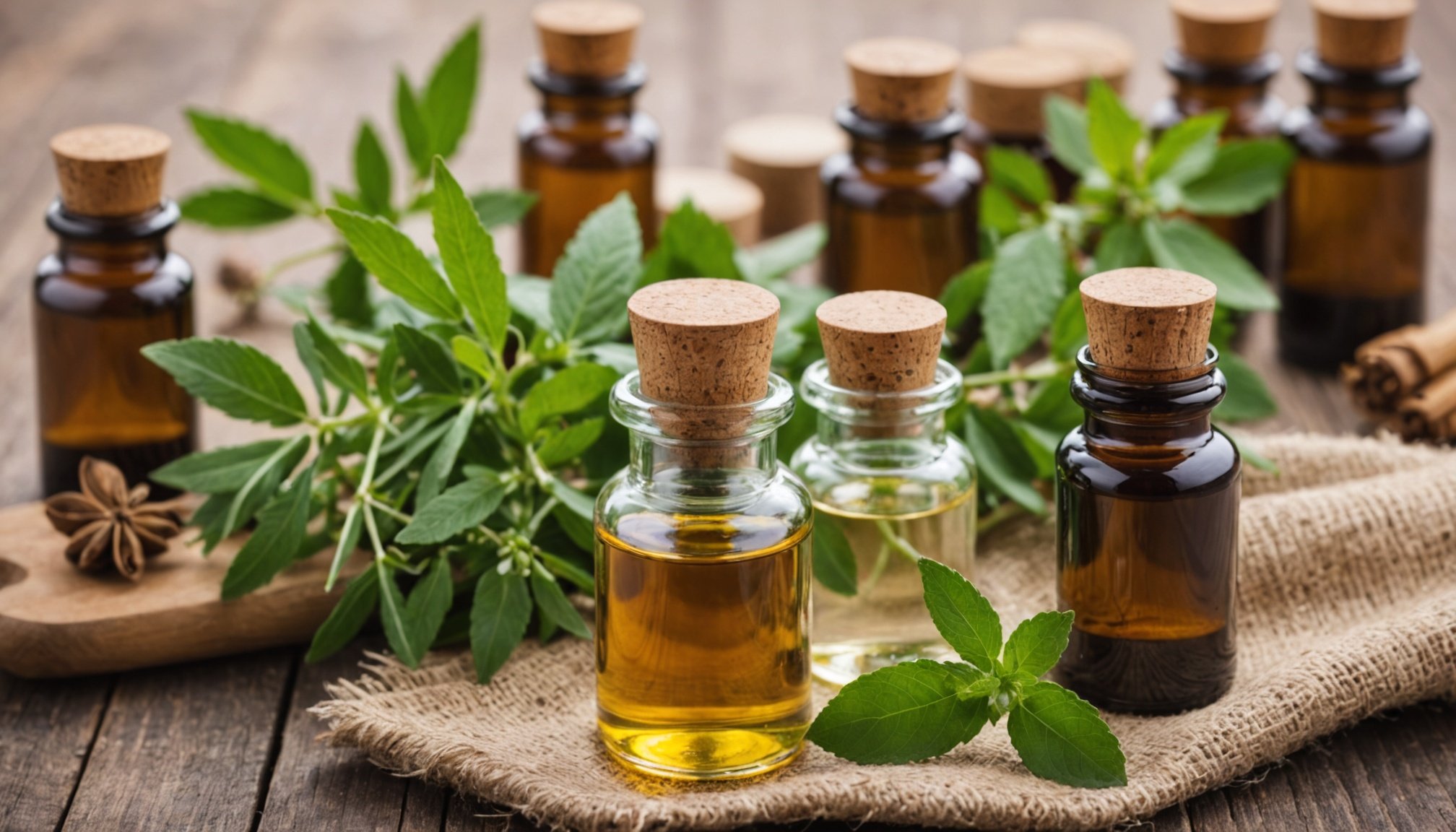Overview of Aromatherapy
Aromatherapy is a holistic healing practice that uses essential oils extracted from plants to promote overall well-being. Historically, civilizations like the Egyptians and Chinese have incorporated aromatherapy into their traditional medicines for thousands of years, recognising its potential in treating various ailments. This practice remains prevalent today, harnessing nature’s essence to address both physical and emotional health concerns.
Mechanisms of Action
Aromatherapy works by stimulating the limbic system, the part of the brain involved in emotions and memories. When essential oils are inhaled, their scent molecules activate neuroreceptors, leading to improved mood and anxiety relief. This process can help manage symptoms like stress, enhancing one’s overall mental state. Furthermore, the topical application allows oils to penetrate the skin, providing localized relief and promoting relaxation.
In parallel : Maximizing Mental Health: The Impact of Pharmacogenomic Testing on Tailoring Depression Treatments
Importance in Cancer Care
Incorporating aromatherapy into cancer care offers a supportive, non-invasive option to manage symptoms. Being a part of a holistic approach, it focuses on alleviating emotional and psychological stressors associated with cancer treatment. Essential oils like lavender and chamomile are commonly used to aid sleep and reduce anxiety, complementing traditional medical treatments and improving patients’ quality of life.
Essential Oils for Anxiety Relief
Harnessing the calming properties of essential oils can be a game-changer for those battling anxiety. Let’s delve into some popular oils and explore their therapeutic attributes.
Have you seen this : Exploring the Impact of Digital Cognitive Behavioral Therapy on Insomnia: Are CBT Programs the Solution?
Introduction to Specific Essential Oils
The world of essential oils is rife with options, but not all are created equal when it comes to anxiety relief. Lavender, chamomile, and bergamot are particularly noted for their effectiveness. Each oil boasts unique properties that cater to different aspects of mental well-being, providing a natural avenue for stress management.
Benefits of Lavender Oil
Lavender oil is heralded as a quintessential choice for calming the mind. Known for its soothing scent, this oil is often used in aromatherapy to cultivate a sense of tranquility and reduce stress. Studies suggest that lavender can lower heart rate and blood pressure, inducing a state of relaxation. Its versatility allows it to be used in diffusers, topical applications, or even as a part of your self-care ritual.
Role of Chamomile and Bergamot
Chamomile, with its gentle aroma and sedative effects, is another essential oil that promotes calm. Often associated with aiding sleep, chamomile can also ease anxiety symptoms. Bergamot, on the other hand, invigorates while calming, ideal for those needing an uplifting mood without added jitteriness. Both oils are supported by research demonstrating significant anxiety reduction in clinical environments.
Research Findings on Aromatherapy and Cancer Patients
Research into aromatherapy’s potential benefits for cancer patients continues to grow, particularly concerning its ability to reduce anxiety. Various clinical trials have explored this connection, consistently showing promising outcomes for patients undergoing cancer treatment.
A multitude of studies have indicated that aromatherapy can indeed play a role in anxiety reduction. For example, several clinical trials have examined cancer patients receiving aromatherapy treatments alongside standard care. These trials often focus on using essential oils like lavender and chamomile, which are renowned for their calming properties. In many cases, patients report a noticeable decrease in anxiety levels following aromatherapy sessions.
When analysing these studies, researchers assess the statistical significance of the findings to determine aromatherapy’s true impact on patients. This involves comparing anxiety reduction scores between groups receiving aromatherapy and those who do not. Additionally, researchers look at the practical implications of these results. This includes whether aromatherapy could be feasibly integrated into regular cancer care routines, and how this might benefit patients’ overall well-being.
Overall, research studies and clinical trials reveal aromatherapy’s significant potential to alleviate anxiety in cancer patients. This remains a compelling area for continued investigation, with the aim of enhancing patient care through complementary therapies.
Personal Testimonials and Anecdotal Evidence
Understanding the impact and efficacy of alternative therapies such as aromatherapy can be challenging without real-world insights. Here, personal stories and testimonials from patients and healthcare providers play a crucial role in illuminating these experiences.
Case Study Overview
A recent compilation of case studies sheds light on cancer patients’ experiences with aromatherapy. These patients have shared their personal stories, emphasizing improved quality of life and emotional well-being. One patient noted increased relaxation and reduced anxiety after incorporating aromatherapy sessions into their weekly routine. Such case studies provide valuable testimonials about the practical benefits of aromatherapy, illustrating its potential as a supportive care option.
Anecdotal Insights from Patients
Patients often express the emotional and mental relief received from using aromatherapy during treatment. Common themes in these anecdotal accounts include reduced stress levels and enhanced mood. One recurrent narrative describes how scents like lavender and eucalyptus became a comforting ritual amid challenging treatments.
Healthcare Provider Perspectives
Healthcare providers have started incorporating personal stories into their advocacy for alternative therapies. Professionals often highlight how testimonials from fellow patients can encourage others to explore these options. They suggest that real-life experiences add a relatable dimension to the typically clinical environment of health care. By sharing such anecdotal evidence, providers support a more holistic patient experience.
Benefits and Risks of Aromatherapy
Aromatherapy can offer a range of benefits for individuals undergoing cancer care. Some potential advantages include providing stress relief, improving mood, and alleviating symptoms like nausea and pain. Essential oils, such as lavender and peppermint, are often utilized for their calming and uplifting properties, making them a popular complementary therapy.
However, it is crucial to be aware of the risks associated with aromatherapy. Certain essential oils may cause allergic reactions or interfere with conventional cancer treatments. Misuse, such as applying undiluted oils directly to the skin, can lead to irritation or other adverse effects. Understanding these potential risks is vital for safe use.
To ensure the safety of aromatherapy, it is essential to follow appropriate guidelines. This includes consulting with healthcare providers before incorporating aromatherapy into your treatment plan. Professional advice can help you understand any contraindications and ensure that the chosen oils do not interact negatively with ongoing treatments.
By addressing both the benefits and risks, patients can make informed decisions about using aromatherapy in their cancer care regimen. This balanced approach underscores the importance of professional guidance to maximize benefits while minimizing potential risks.
Practical Applications of Aromatherapy
Exploring practical tips and usage methods can significantly enhance the effectiveness of aromatherapy in daily life, especially for those navigating health challenges.
How to Incorporate Aromatherapy in Daily Life
Integrating aromatherapy into everyday routines can be simple and rewarding. Essential oils can be diffused in common spaces to promote relaxation or focus. Topical applications, through diluted blends, provide benefits such as stress relief or headache reduction when applied to the skin. Inhalation techniques, like sniffing aromatic inhalers, offer a quick boost during busy schedules.
Recommended Practices for Cancer Patients
For cancer patients, aromatherapy may relieve symptoms like nausea or insomnia. It is crucial to consult healthcare providers before use. Choosing gentler oils and methods, like adding drops to bath water, ensures comfort and safety.
Integrating Aromatherapy with Professional Care
Communication is key when using aromatherapy alongside professional treatments. Discuss essential oil usage with healthcare professionals to ensure no adverse interactions occur. Self-administration techniques should be reviewed and verified for safety and effectiveness. Such integration allows for a comprehensive approach, enhancing overall well-being and care outcomes.











